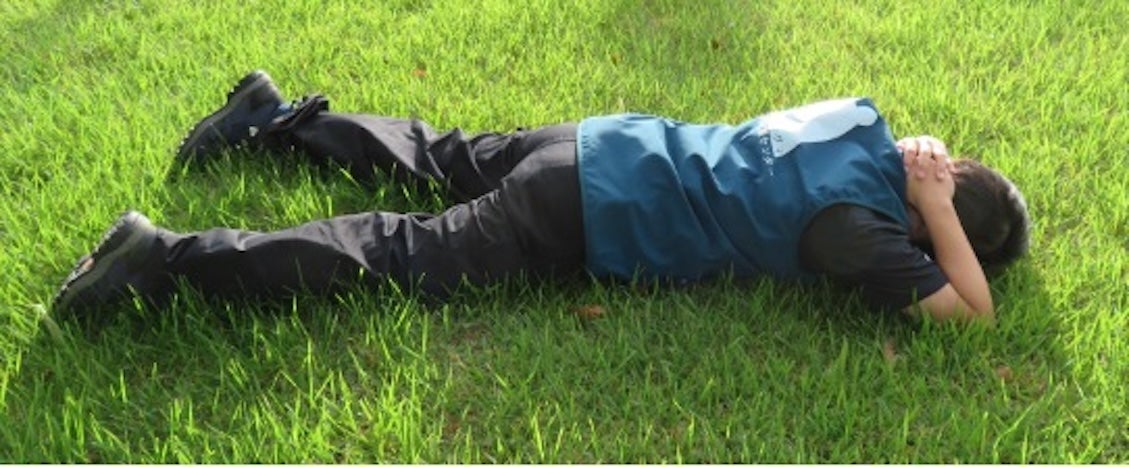Taking a defensive posture by lying face down when encountering a bear can prevent serious injuries, according to a new Japanese study.
Japan had a record number of fatal encounters this year as nine people were killed by bears across the country, according to the environment ministry.
Researchers from the Akita University in northeastern Japan surveyed 70 people injured in bear attacks in 2023 and found that facial, hand and arm injuries were the most prevalent. However, seven people among those surveyed who lay face down and covered their heads and necks escaped serious injuries.
Scientists assessed personal accounts of the attacks from survivors and linked this data to medical record information such as the injury type and severity in findings that are the first of its kind based on actual data.
Of the 70 surveyed, 23 were severe cases with multiple trauma, requiring general anaesthesia and the amputation of fingers and limbs.
“There were 23 severe cases, six cases of facial nerve palsy, and four cases of eyeball disorders,” the study published in the journal Clinical Orthopaedic Surgery noted.
“Among those who were affected, 7 people (10 per cent of the total) were able to take a defensive posture, and none of these 7 people were seriously injured,” researchers said.
Bears are widespread in Japan, with brown bears found in Hokkaido and black bears seen widely in Honshu and Shikoku prefectures.
In recent years, bear attacks have increased, attributed to changing habitats caused by an increased frequency of human activities in forests.
Of the 209 bear‐related human injuries reported in the country in 2023, 70 occurred in Akita prefecture in northern Japan.
Most of the injured were attacked while performing daily outdoor activities near their own residence.
“Attacks were frequent even in areas close to people’s homes, such as farmland and wooded residential zones,” researchers wrote.

"It is important for people to understand bear habits and learn effective ways to protect themselves from attacks,” study co-author and orthopaedic surgeon Yuki Ishigaki told Japan’s Kyodo News agency.
While the defensive posture uncovered in the study cannot guarantee complete safety, researchers say it may help minimise injuries to the head and upper body, which are areas most often targeted by bears during attacks.







